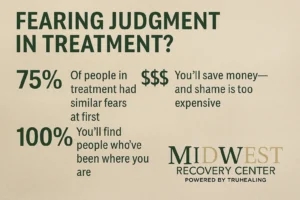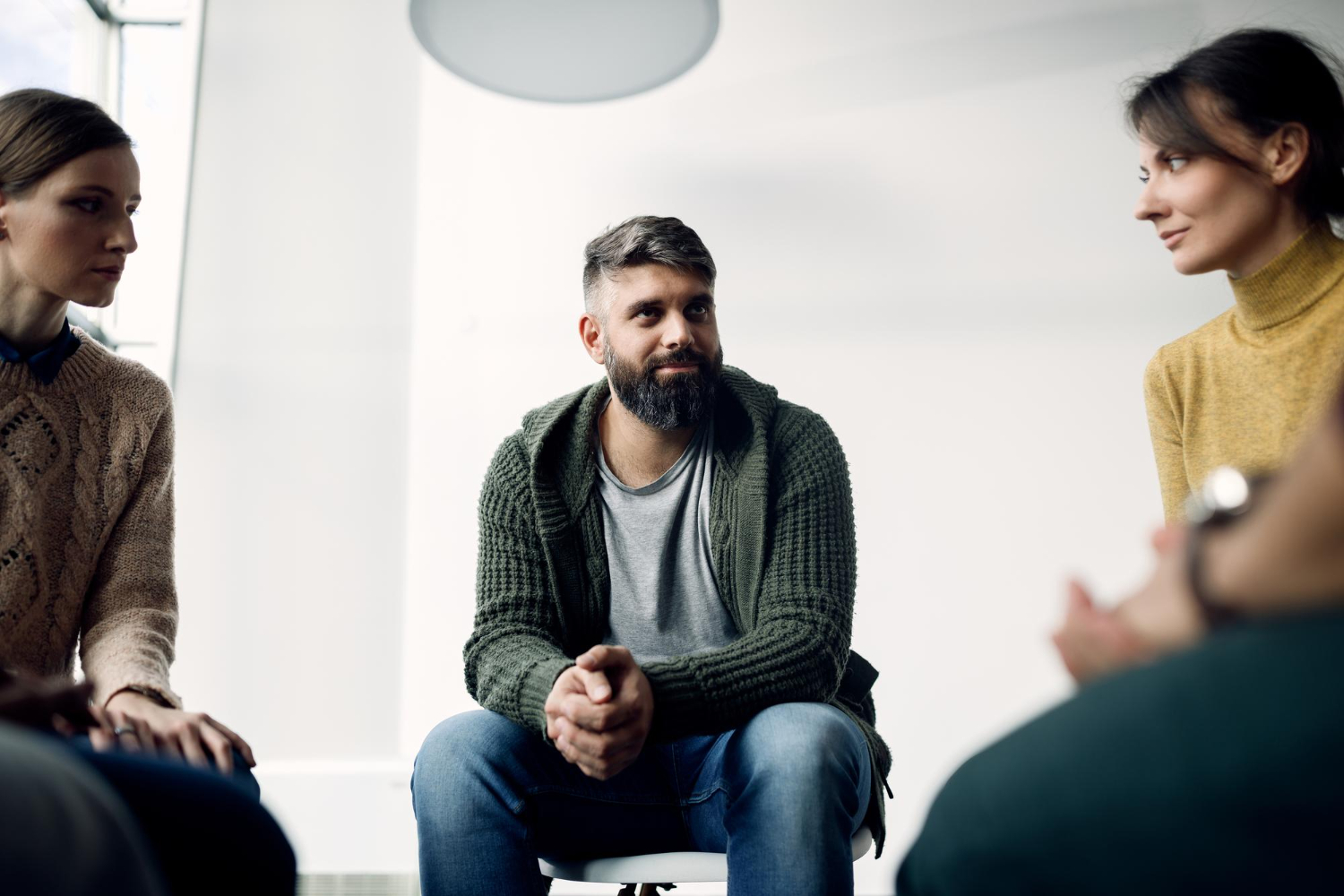When you’re newly sober, it can feel like every emotion has been turned up to full volume—shame, fear, hope, all swirling together. The loneliness hits hard. Even harder is the question you don’t say out loud: “Will people judge me if I go to treatment?”
Especially something like a partial hospitalization program in Toledo, Ohio—it sounds serious. Structured. Maybe even a little intimidating.
But here’s the thing most people in recovery eventually learn: the bravest choice often looks like the scariest one at first. And if you’re asking this question, it means something inside you wants healing. Even if you’re scared of what it might look like.
Let’s talk honestly about those fears—because judgment should never keep you from getting better.
Why does the idea of treatment feel so vulnerable?
Because it asks you to take your pain off mute.
Most of us spend years perfecting our ability to hide. We smile when we’re struggling. We make jokes to mask anxiety. We go to work, show up for others, and crumble behind closed doors.
So the thought of walking into a treatment center—even something as flexible as a partial hospitalization program (PHP)—can feel like holding up a sign that says, “I’m not okay.”
But here’s what you won’t know until you do it: the moment you stop hiding is the moment healing begins. It’s not about putting your business out there. It’s about giving yourself permission to stop carrying everything alone.
What exactly is a partial hospitalization program?
A PHP is a structured daytime treatment program that gives you the intensity of inpatient care without requiring you to live at a facility. You go during the day—usually five days a week for several hours—and return home at night.
This kind of program is ideal for people who:
- Need more support than outpatient therapy provides
- Want to avoid a full-time residential program
- Are transitioning out of inpatient treatment but still need daily structure
If you’re in Lucas County or nearby communities like Maumee or Oregon, Ohio, Midwest Recovery offers a partial hospitalization program that blends accountability with compassion.
You’re not in a hospital gown, isolated from the world. You’re working with real people who understand what it means to want change—and to be terrified of it at the same time.
Will people think less of me if I go?
Let’s be honest: that fear is real. We live in a world that still carries a lot of stigma around addiction and mental health. You might worry that your job, your family, or your social circle won’t understand.
But here’s a hard-earned truth: most people are way too focused on their own struggles to keep score of yours.
And the ones who do judge? They’re often the ones still pretending they don’t have anything to work on. People who are brave enough to face their pain head-on make others uncomfortable—but not because they’re weak. Because they’re freeing themselves in a way others haven’t figured out yet.
You might lose a few people on the way to recovery. But the ones worth keeping will lean in closer when they see you choosing yourself.
Can I keep it private?
Absolutely. Starting a PHP doesn’t mean you have to announce it to the world.
At Midwest Recovery, we understand that privacy matters—especially when you’re just beginning. Our partial hospitalization program in Toledo is designed to respect your confidentiality. You can get help without putting your personal life on display.
We’ll work with you to:
- Coordinate with your employer if needed
- Protect your medical privacy
- Support you in setting boundaries with family or friends
You decide who knows and when. And trust me—just because you’re not broadcasting it doesn’t mean it’s not a bold, beautiful move.

What if I feel like the only one?
That feeling? It’s common. Especially in early sobriety.
You might look around and feel like everyone else is living their best life while you’re struggling to get out of bed. Social media makes it worse. Everyone seems “fine,” and you’re over here Googling how to stop crying in the shower.
But here’s the truth:
You’re not the only one.
You’re just the one being honest about it.
In PHP, you’ll meet people you never expected to relate to. A single dad who drinks to sleep. A nurse who’s burnt out and silently falling apart. A college student who thought Adderall would help them succeed but ended up spiraling.
Nobody walks into a treatment center because life is easy. But the people who walk in? They’re the ones brave enough to do something about it.
“Group felt awkward at first. I didn’t know what to say. But by the second week, I realized—I wasn’t the only one who cried in the parking lot before walking in. I wasn’t the only one scared out of my mind. And I definitely wasn’t the only one who wanted to be free.”
– Former PHP Client, 2023
What does a typical day look like?
In a partial hospitalization program, your day has structure—but not pressure.
You’ll have:
- Group therapy that focuses on real-life emotions, not surface-level talk
- Individual counseling to work through your story and your goals
- Skills groups where you learn how to handle triggers, relationships, and daily stress without numbing out
- Support for co-occurring mental health needs like anxiety, depression, or trauma
You’ll start the day with people who get it. You’ll end it with more clarity than when you walked in. And you’ll start to realize—bit by bit—that healing doesn’t happen all at once, but it does happen.
What if I’m still unsure?
That’s okay. You don’t need to be “sure.” You just need to be curious enough to look.
Recovery isn’t about certainty. It’s about willingness. Willing to ask questions. Willing to feel uncomfortable. Willing to believe that life doesn’t have to stay this way.
If you’re still not sure, ask yourself:
- Am I tired of feeling like I’m hiding something?
- Do I want support, even if I’m afraid of what that means?
- Would it feel like relief to have someone help me hold all this?
If the answer to even one of those is yes—you’re ready enough.
What if people treat me differently?
They might. But it doesn’t mean they see you as weak.
Some people will treat you with more compassion. Others might not know what to say. And a few might pull away—because they don’t understand. Or because your decision makes them question their own.
But here’s what usually happens:
Eventually, they start to ask you questions. They start to wonder if maybe they could get help too. You become the person they think of when they’re hurting. Because you were brave first.
Being treated differently isn’t always a bad thing. Sometimes it’s the first sign that you’re becoming someone even you can respect again.
Is this really what healing looks like?
Yes. And no.
Healing isn’t always pretty. It’s not yoga mats and green smoothies and peace signs. Sometimes it’s crying through group. Sometimes it’s being honest for the first time in years. Sometimes it’s just… showing up, even when everything in you wants to hide.
But inside a PHP, surrounded by people who get it, you begin to stitch your life back together. Slowly. Intentionally. With support.
And one day, maybe not long from now, you’ll look back and realize: You didn’t just survive. You rebuilt.
Still wondering if this is right for you?
Call (888) 657-0858 or visit our partial hospitalization program page to learn more about how Midwest Recovery supports people in early recovery—right here in Toledo, Ohio.
You don’t have to be fearless. You just have to be willing.
Let’s take the next step together.


























